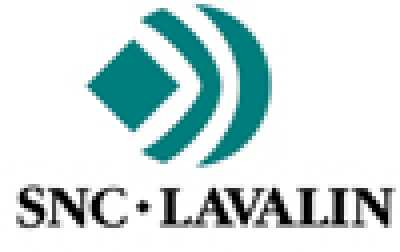WB puts SNC-Lavalin on blacklist over Padma bid

The World Bank, now probing into the alleged irregularities in the bidding for Bangladesh's biggest Padma Bridge Project, has temporarily barred a unit of SNC-Lavalin, a big Canadian engineering company, from bidding on new bank projects, according to online reports.
SNC-Lavalin Inc said Monday a subsidiary has been temporarily barred from bidding on new contracts by the WB.
The bank launched an investigation into the alleged irregularities in the bidding process in September last. A contract to build the bridge has not been awarded.
But the row over alleged corruption has already led to the suspension of funding by the Washington-based lender for the crucial Bangladesh project.
The Canadian engineering giant's offices outside Toronto were raided in September 2011 by the Royal Canadian Mounted Police as part of an investigation into the company's work on Padma Bridge, a World Bank-funded project in Bangladesh. A month later, the World Bank suspended its $1.2 billion loan for the project, its biggest-ever off-credit line to any country.
The temporary suspension is not a final decision, but is meant to control the interactions the company has with the World Bank as it continues an investigation, SNC-Lavalin said. The company intends to respond to allegations outlined in a World Bank report, as is allowed under the institution's regulations.
The World Bank report, and therefore the allegations contained within it, are confidential, according to a description (pdf) of the temporary suspension process on the bank's website.
Ian Bourne, SNC-Lavalin's interim chief executive, said in a statement that the company respects the World Bank's decision, but that ongoing projects will continue, and other subsidiaries will bid for new projects.
"We launched our own internal investigation when this matter was first brought to our attention and we will continue to cooperate fully with the World Bank on this matter," said Bourne.
A World Bank spokeswoman didn't immediately respond to a request for comment.
SNC-Lavalin was going to act as the engineer for Bangladesh government in supervising the contractor responsible for building the bridge, which would link Bangladesh's underdeveloped south with the capital, Dhaka, and the country's main port, Chittagong. Once completed, it would be the largest bridge in the country.
In 2010, the World Bank joined a consortium of the Japanese government, the Asian Development Bank and the Islamic Development Bank to provide Bangladesh up to $2.9 billion for the bridge.
The temporary suspension is the latest in a string of developments surrounding SNC-Lavalin's business practices. Last month, the company's chief executive stepped down after an internal probe found he breached company policies by approving $56 million in payments that it said were inappropriate. SNC-Lavalin has also been under scrutiny for its business in Libya with the ousted regime of slain ex-leader Muammar Gaddafi.
"While we do not expect this World Bank decision will materially impact SNC directly, we view the news as negative, particularly given SNC's recent findings with respect to its internal board investigation," RBC Capital Markets analyst Sara O'Brien said.
She said she expected SNC's stock, which is down 22 percent in the past three months, to come under more pressure.
The stock finished 2.0 per cent higher at C$40.75 on the Toronto Stock Exchange on Monday. The news was released shortly before the market closed.
SNC, which is one of the world's biggest engineering companies, said it intends to provide a "comprehensive response" to the allegations contained in the confidential World Bank report.
It did not name the unit affected by the World Bank suspension. The company declined to comment further saying the World Bank report was confidential.
SNC-Lavalin has offices across Canada and in over 40 other countries around the world, and is currently working in some 100 countries.
Financial Express/Bangladesh/ 4th April 2012
Other Posts
- BKB launches two products
- High inflation has positive impact on remittance inflow Bangladesh Bank research reveals
- SEC okays modified rules for merchant banks
- Islami Bank Bangladesh Limited addressing a workshop on "Regulatory Issues on Import Trading"
- As currency floats, Myanmar's banks rise again
- NCCB opens ATM booths in Sylhet
- Nominations invited for ‘Bangladesh Bank Award’
- Zoellick backs BRICS bank idea.




Comments